Parkinson's: The café bringing patients together in Londonderry
- Published
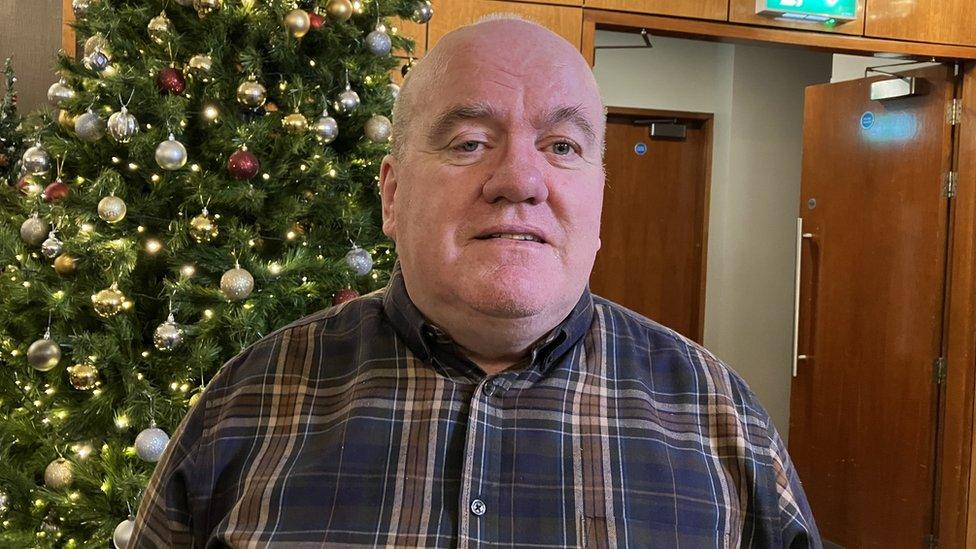
Denis Brown has been living with Parkinson's for about 15 years
At first glance, it looks like friends having a coffee and a catch up.
But for some of those around the table, it's the chance to see a friendly face who appreciates the daily challenge of living with Parkinson's.
The Parkinson's Drop-In Café in Londonderry is the latest of five such establishments in Northern Ireland for those with the condition.
There are also informal drop-in sessions in Belfast, Newry and Derry for those with early onset Parkinson's.
While the north west project may still be in its infancy, having held just four meetings, it is already attracting patients, families and carers alike.
About 15 years ago, former taxi driver Denis Brown started noticing a twinge in his finger. Shortly after, in 2008, he was diagnosed with Parkinson's at the age of 44.
The challenges of Parkinson's
He was able to continue as a driver for seven years after his diagnosis until his licence was revoked. Since then he has been unemployed.
Denis said the progressive neurological condition affects him on a daily basis, often leaving him feeling stiff and suffering from shakes.
However, his family, including his four grown-up children, have been there for him every step of the way.
The new drop-in café is the perfect spot for people like Denis to discuss the condition freely.
"We can sit here and laugh and joke about it," he told BBC News NI.
"At the time I was diagnosed I could have gone to a meeting but they were all too old to me.
"As long as I can walk and get a pint at the weekend, I'm grand."
The Drop-In Parkinson's Café in Belfast was established just before the Covid pandemic.
The final four in Newry, Downpatrick, Dungannon and Derry were set up in 2023 as part of Parkinson's UK's Minds Matter Project.
It is funded by the Department of Health, administered by The Community Foundation Northern Ireland and led by volunteers.
The project aims to connect people living with Parkinson's and provides other events focused on health, wellbeing and sleep.

What is Parkinson's disease?
Parkinson's is a progressive condition that worsens over time.
Those with the disease have too little of the chemical dopamine in their brain because some of the nerve cells that make it have stopped working.
Symptoms include:
involuntary shaking of parts of the body
slow movement
stiff and inflexible muscles
Source: Parkinson's UK, external

'I only knew Michael J Fox and Muhammed Ali'
At just 21 years old, Kieran Whoriskey started showing symptoms of Parkinson's. Three years later, in 1998, he was "relieved" when he received his official diagnosis.
"When I was diagnosed I didn't know anybody with Parkinson's," he said.
"The only people I knew were Michael J Fox and Muhammed Ali and there was nobody I could contact because Facebook and all weren't around - it was all pretty new.
"Later on down the years, it's a big help to know that somebody knows what you are going through."
Now 48, he said he takes each day as it comes: "You just have to get on with it. You just can't sit down and cry about it."
The Parkinson's Café, Kieran said, is a "brilliant" initiative.
"They are unbelievable because they know and you can share things about what you are going through," he added.
"They all understand and they all know the craic.
"The group that we met up with here are vital, they give people who are young a good chance to relate to other people that have the same condition because without that, it's a hurdle."
Supporting each other
Catherine Doran, who helped organise the Parkinson's Drop-In café, said the get-togethers are making a lasting impression.
"When you are diagnosed with a potentially life-changing condition, when you've not really got much information about it yet, then it's nice to see other people who can manage the condition," she said.
Catherine said that between work, family life and other issues, Parkinson's patients may not always give their condition much thought.
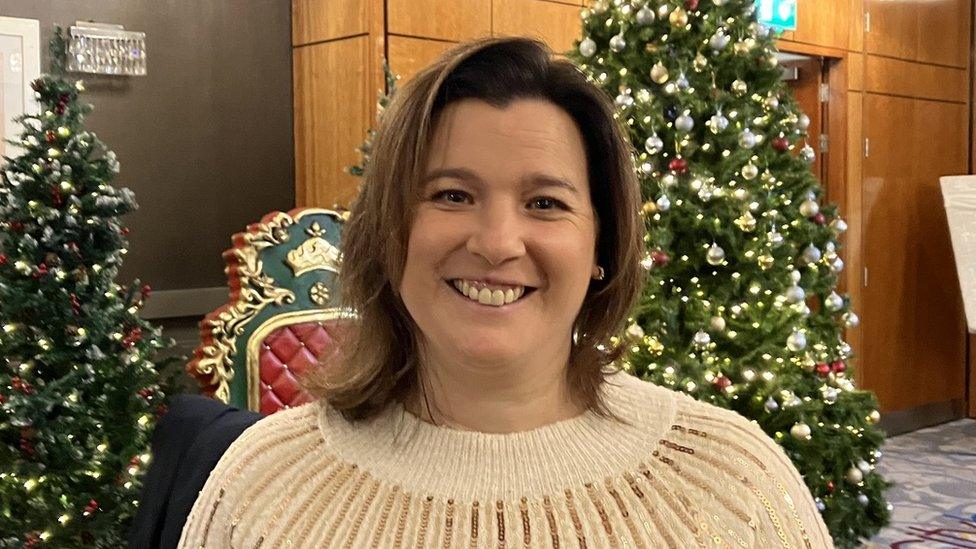
"If you sit at home by yourself, everything just feels much bigger" - Catherine Doran
The one-hour session each month then allows them to take the time out and meet others with the condition.
"When you've got a long-term health condition trying to manage that is so important," she added.
"If you sit at home by yourself everything just feels much bigger, so it's always good they can talk to one another and find some peer support."
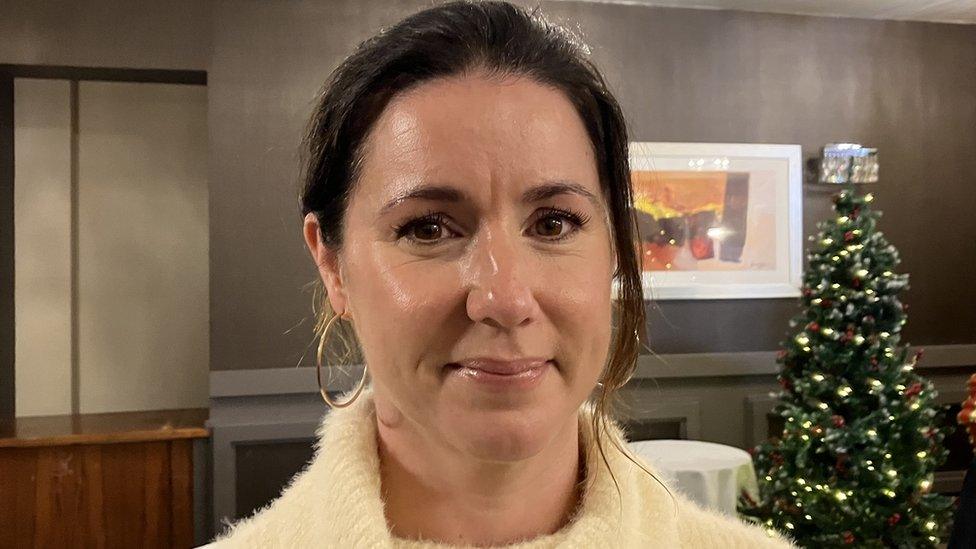
"It's a very individual journey for every person" - Anna Murray
Anna Murray, the area development manager of Parkinson's UK, said that there are more than 50 recognised symptoms of Parkinson's which can be managed with medication.
"Medication will mask the symptoms but there's no medication at the moment that can cure it.
"As the symptoms change, you'll need medication to change.
"I have yet to meet people who have the same story, who take the same medication even, so it's a very individual journey for every person."
- Published8 December 2023
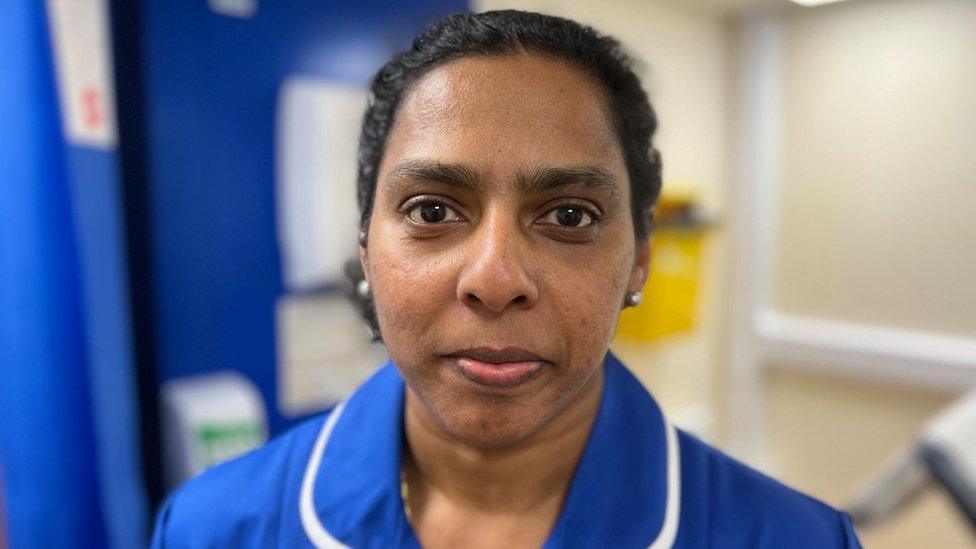
- Published10 December 2023
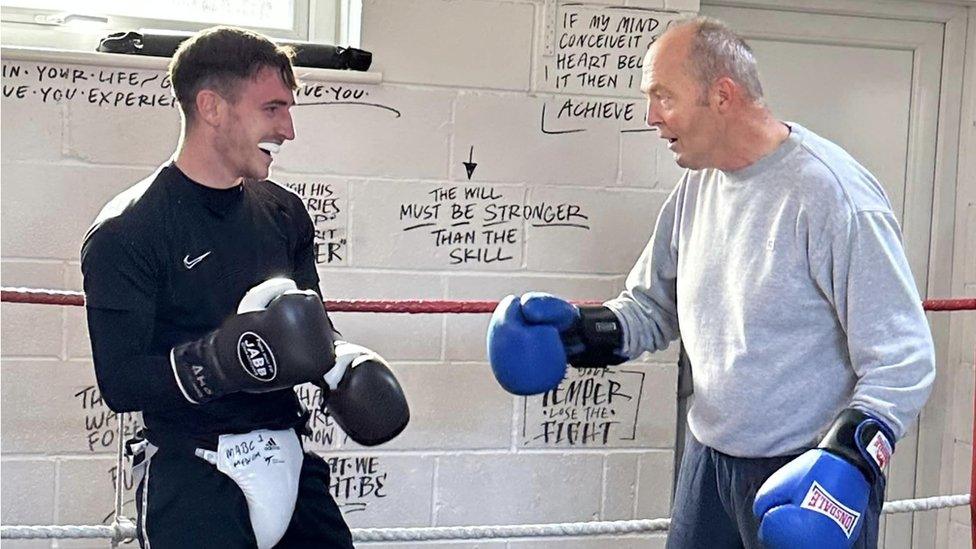
- Published25 October 2023
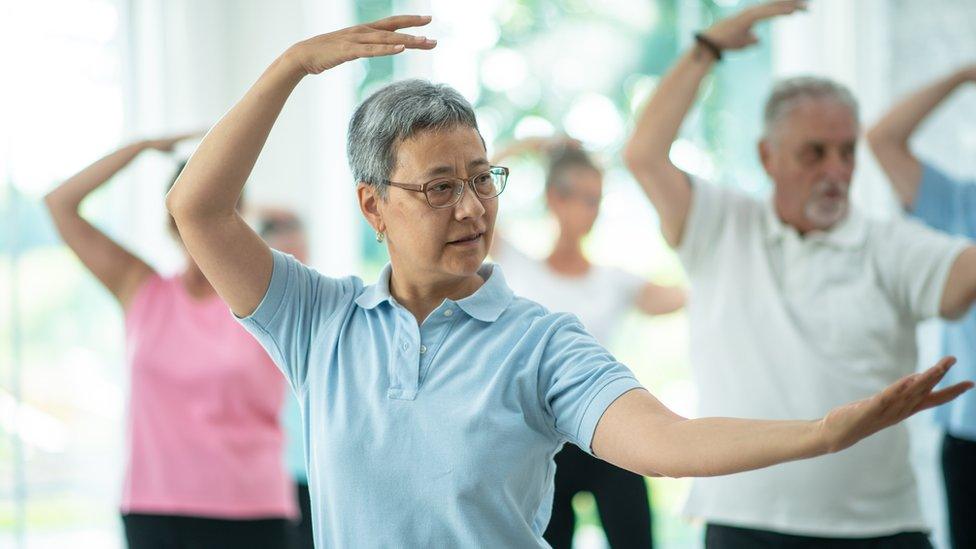
- Published25 August 2023
